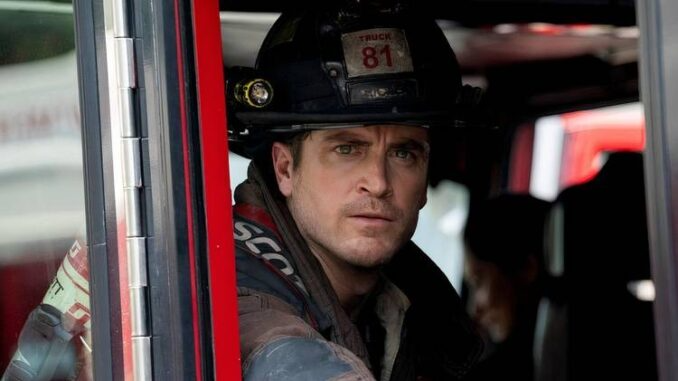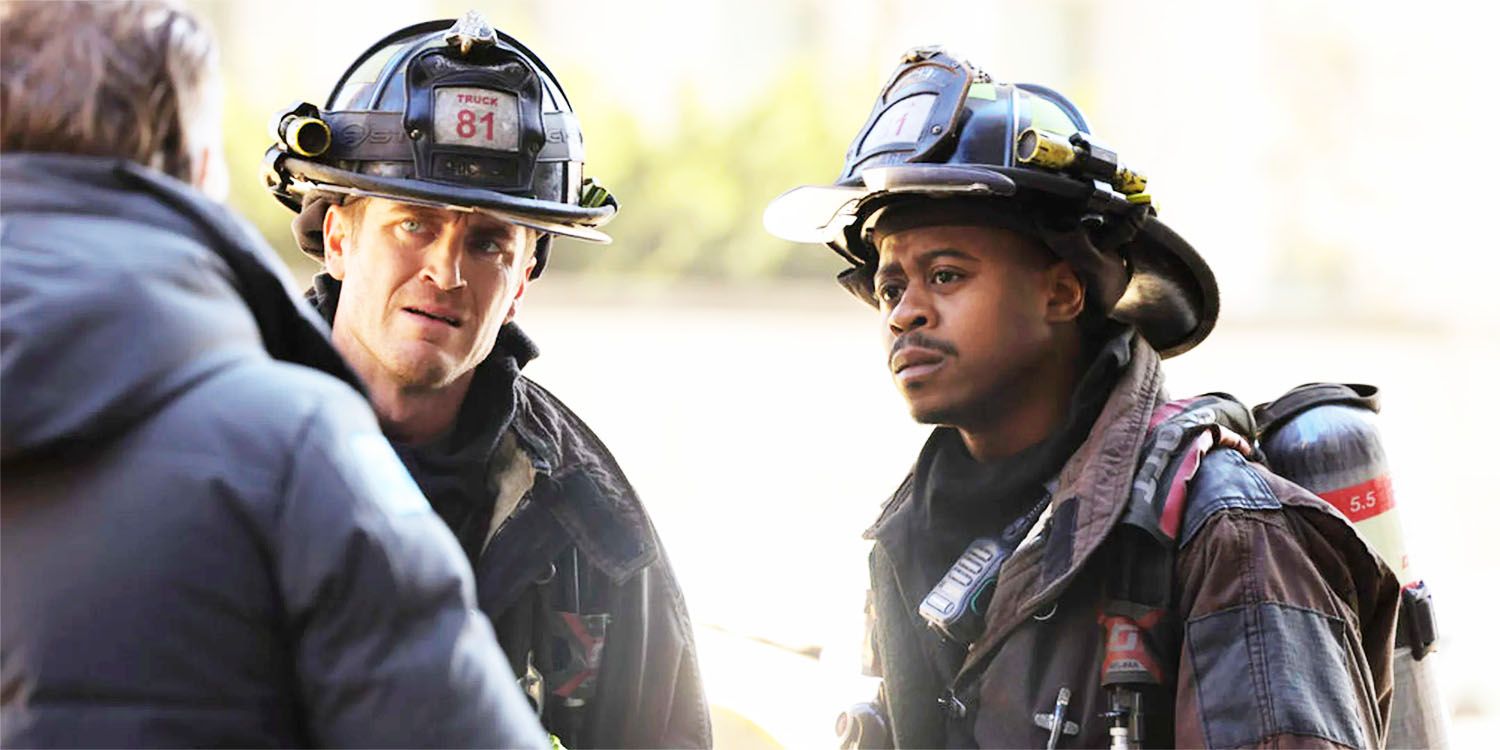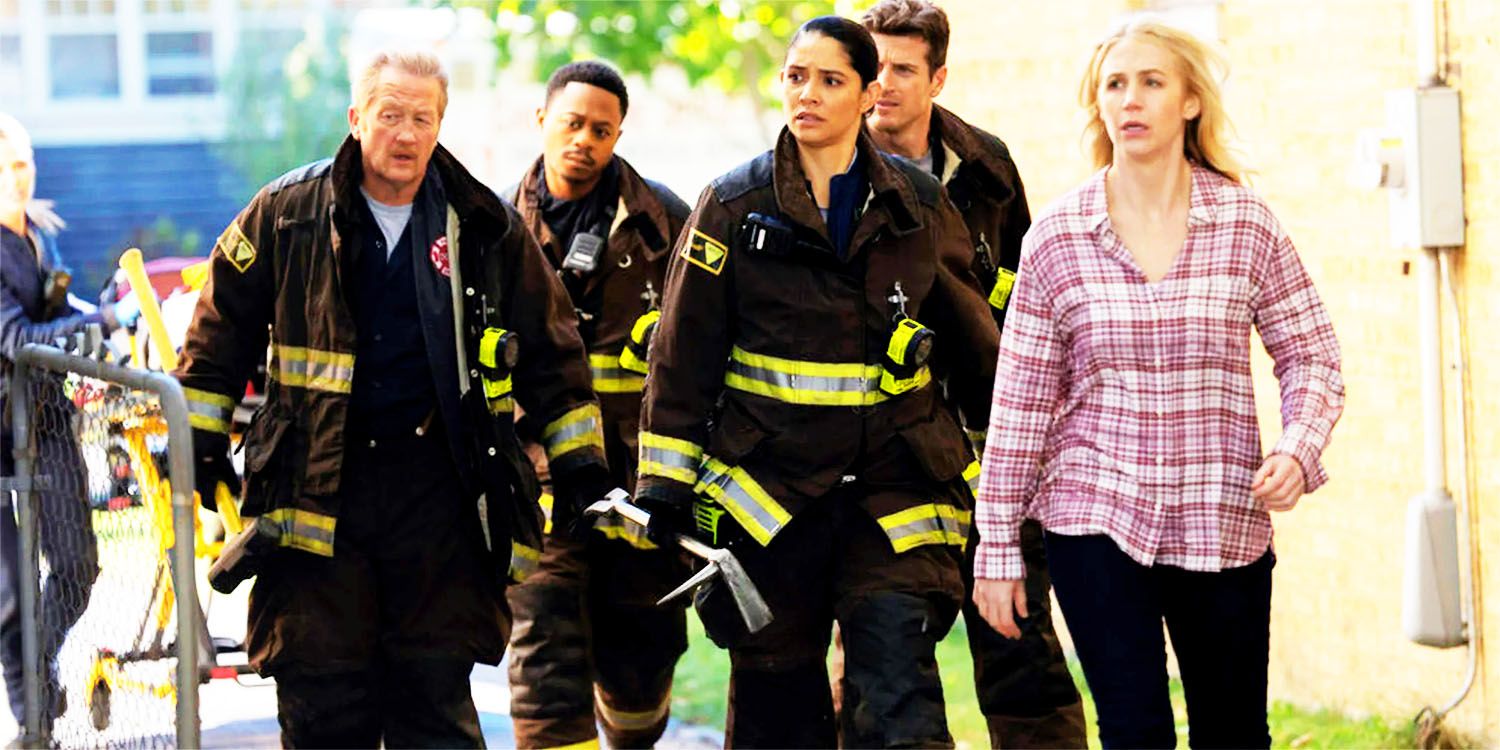
Chicago Fire Season 13 is no stranger to emotional moments, but as the show nears its finale, it’s not just the flames that are burning—so are fan frustrations. After the emotional fallout of episode 19, “Birds of Prey,” it’s now clear that NBC and Wolf Entertainment may be making a critical error: saying goodbye to the wrong characters.
A History of Turnover — And a New Low
Over the years, Firehouse 51 has seen its fair share of departures, from Matt Casey and Chief Boden to Brett and Gallo. But while some exits felt narratively justified or actor-driven, others seemed abrupt. And now, with Jake Lockett (Sam Carver) and Daniel Kyri (Darren Ritter) confirmed to leave by the end of Season 13, fans are left wondering: why now, and why them?
Both actors have been silent on how they’ll be written out, and NBC hasn’t revealed much either. The finale’s title, “It Had To End This Way,” feels more like a cruel tease than a meaningful send-off. Unlike Eamonn Walker’s well-earned Boden exit, there’s been no build-up, no foreshadowing—just a looming curtain call.

The Wrong Firehouse 51 Members Are Leaving
Ritter and Carver aren’t just background characters. They’ve become emotionally grounded, reliable members of Firehouse 51, and in Season 13, their storylines have quietly offered some of the most compelling character development in the series.
Ritter, one of the show’s few LGBTQ+ characters, is now navigating a new roommate dynamic with Lizzy Novak. Their scenes are warm, funny, and authentic—an echo of the show’s golden days when Brett, Otis, and Cruz lived together.
Meanwhile, Carver has come full circle. After a dark season wrestling with addiction, his slow-burn reconnection with Violet Mikami has been one of the season’s most heartfelt arcs. In “Birds of Prey,” the two not only share real emotional progress but rekindle a spark that fans had been waiting to see reignited.
To cut both actors now, just as their characters find new meaning and emotional weight, feels not only premature—it feels wrong.
An Ensemble That Needs to Evolve, Not Shrink
Chicago Fire’s core cast has always been the soul of the show: Herrmann, Mouch, Kidd, and Severide are irreplaceable. But a show like this can’t rest on familiarity forever. It must evolve.
Season 13 has made efforts to inject fresh energy, but getting rid of Carver and Ritter contradicts that goal. These two could be the bridge between old and new—a way to carry legacy while making room for the next generation. They’re already beloved, fully integrated, and capable of anchoring subplots beyond just support roles.
And if the show wants to stay fresh for Season 14 and beyond, investing in rising characters—not cutting them—is the smarter play.

What’s Really Behind Their Departures?
Although neither actor has publicly stated their departure was by choice, speculation suggests cost-cutting may be the cause. That’s not a new phenomenon for long-running shows, and Chicago Fire is no exception. However, removing Ritter and Carver while keeping other, more narratively exhausted characters around sends the wrong message.
Even if the decision is budget-driven, it risks undermining story momentum at a time when One Chicago is trying to reclaim its franchise-wide cohesion.
Can They Come Back? Maybe, But Don’t Count on It
With Chicago Fire already renewed for Season 14, there’s always a chance that Carver or Ritter could return in a limited capacity. The franchise has a history of guest returns—like Casey for Brett’s wedding or Boden’s special mission.
But a full-time comeback? Unlikely.
Without clear setups, fans may only get one-off check-ins—far less than these characters deserve. Unless the show has a surprise redemption arc planned in the finale, episode 19 may be the last time fans see Ritter and Carver truly shine.
Final Thoughts: Firehouse 51 Needs Them More Than Ever
In a series built on heart, loyalty, and personal redemption, cutting ties with two of its most grounded and evolving characters feels like a betrayal of its own ethos. Carver and Ritter aren’t liabilities—they’re the future. Their exits don’t just rob the show of fresh perspective; they send a troubling message about where Chicago Fire is heading.
Letting go of good characters at the wrong time isn’t just poor storytelling—it’s a loss for the fans, for the franchise, and for Firehouse 51 itself.